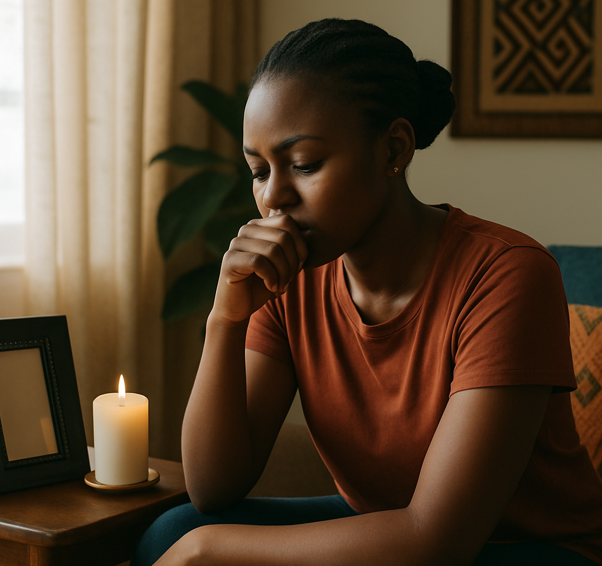
Mother’s Day is a celebration dedicated to honouring maternal figures, a time when families come together to express love and gratitude.
Yet, for many, it is a reminder of absence: the loss of a mother due to death, separation, or other circumstances.
The day can intensify feelings of grief, longing, and emotional turmoil.
For those who are grieving, Mother’s Day often evokes a complex mix of emotions, from sorrow and anger to numbness and confusion.
The societal expectation to celebrate can clash with personal experiences of loss, making the day difficult.
“Grief isn’t something you just snap out of; it’s a process filled with emotional turbulence,” says Mercy Nzuki, a psychologist and mental health advocate in digital spaces.
“Sometimes you’re smiling at a memory; the next moment, you’re overwhelmed by pain. It’s important to acknowledge these emotions, set boundaries, and resist societal pressure to celebrate when your heart is still healing.”
For 24-year-old Felix Kibo, the day is both painful and reflective.
Forced to grieve and celebrate simultaneously, he has spent the past 14 years clinging to scattered memories of his mother.
“Most Mother’s Days, I listen to UB40, I believe it was her favourite band,” he says.
“I also make sure my little sister
is happy by fulfilling her wishes because I know our mother would want to see
us smile.”
Sometimes, when online content featuring other families celebrating becomes too overwhelming, Felix logs off entirely and chooses to pray for his mother’s soul in peace.
Beatrice Awuor, 21, shares a different but equally complicated story.
Separated from her biological mother before her first birthday, Beatrice now has two maternal figures in her life, the one who gave birth to her and the one who raised her.
“It’s hard to fully celebrate my biological mother because our bond is so fragile,” she explains.
“We’re not on bad terms, but we
never had the time to build a close emotional relationship. I often find myself
acknowledging the woman who raised me as my mother.”
Awuor says she started learning to appreciate both mothers despite the unresolved past.
Psychologist Nzuki explains that moments of celebration and grief can often intersect, bringing with them sadness, loneliness, emotional conflict, and intensified pain.
“Such occasions can magnify the void left by a
loved one, making it harder to engage in festive moments,” she notes.
She emphasises that coping strategies can help navigate the day.
Establishing new traditions, like visiting a special place or creating a memory box, can give individuals a sense of control and connection to their loved one.
“Grief and happiness can coexist,” Nzuki says.
“Memories may bring both joy and sorrow. Acknowledging pain, setting emotional and physical boundaries, and creating personal rituals, such as lighting a candle, sharing stories, or practising self-care through rest, therapy, or exercise, are vital.”
She also encourages seeking out grief support groups or professional counselling.
These spaces, she says, offer safety, understanding, and tools to process emotions.
Reflecting on cherished memories through journaling or photo albums can also provide comfort and a way to honour one’s mother meaningfully.
Beyond the personal, society has a
role to play in supporting those who grieve.
Public acknowledgement that Mother’s Day can be painful for some fosters inclusion and empathy.
“One of the most powerful sources of healing is presence, not words,” Nzuki says.
“Friends and family don’t need the perfect phrase. What matters most is showing up and offering a safe emotional space.”
Thoughtful listening, gentle companionship, and affirming someone’s pain without minimising it can make a significant difference.
“Be kind to yourself. Give yourself grace. Grieving is not linear. Cry if you need to. Step away from celebrations if it feels too heavy. Reach out for help. If that means logging off social media or skipping a family gathering, that’s okay, listen to your body,” she says
Finally, she urges creating personal
rituals to honor absent mothers whether through lighting a candle or sharing
cherished memories with siblings.








